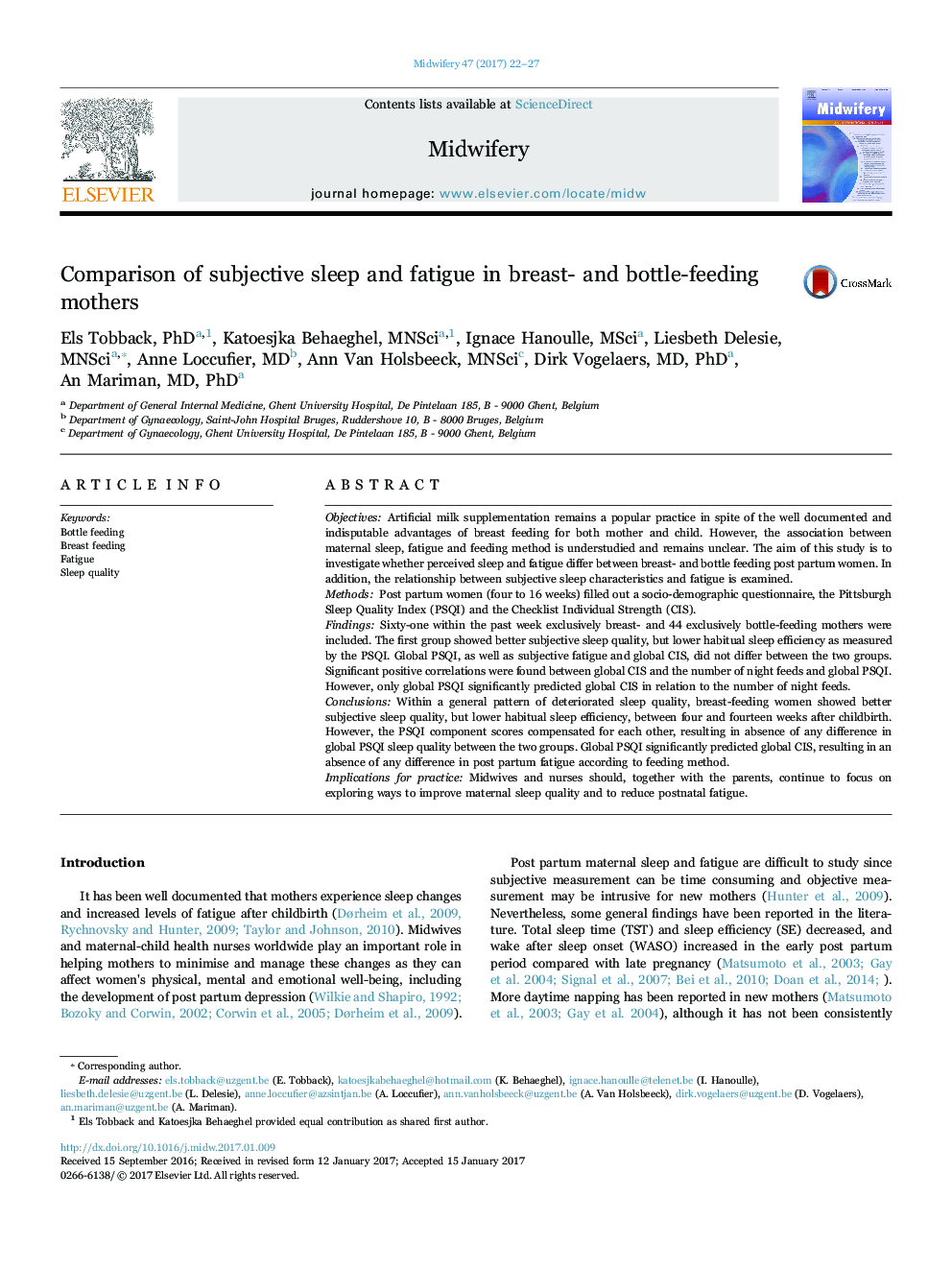| کد مقاله | کد نشریه | سال انتشار | مقاله انگلیسی | نسخه تمام متن |
|---|---|---|---|---|
| 5122331 | 1487137 | 2017 | 6 صفحه PDF | دانلود رایگان |
- Mothers experience sleep changes and increased levels of fatigue after childbirth.
- Sleep disturbances are related to night-time feeding, care and sleeping patterns.
- Global sleep quality did not differ between breast- and bottle-feeding women.
- No difference has been found in post partum fatigue according to feeding method.
ObjectivesArtificial milk supplementation remains a popular practice in spite of the well documented and indisputable advantages of breast feeding for both mother and child. However, the association between maternal sleep, fatigue and feeding method is understudied and remains unclear. The aim of this study is to investigate whether perceived sleep and fatigue differ between breast- and bottle feeding post partum women. In addition, the relationship between subjective sleep characteristics and fatigue is examined.MethodsPost partum women (four to 16 weeks) filled out a socio-demographic questionnaire, the Pittsburgh Sleep Quality Index (PSQI) and the Checklist Individual Strength (CIS).FindingsSixty-one within the past week exclusively breast- and 44 exclusively bottle-feeding mothers were included. The first group showed better subjective sleep quality, but lower habitual sleep efficiency as measured by the PSQI. Global PSQI, as well as subjective fatigue and global CIS, did not differ between the two groups. Significant positive correlations were found between global CIS and the number of night feeds and global PSQI. However, only global PSQI significantly predicted global CIS in relation to the number of night feeds.ConclusionsWithin a general pattern of deteriorated sleep quality, breast-feeding women showed better subjective sleep quality, but lower habitual sleep efficiency, between four and fourteen weeks after childbirth. However, the PSQI component scores compensated for each other, resulting in absence of any difference in global PSQI sleep quality between the two groups. Global PSQI significantly predicted global CIS, resulting in an absence of any difference in post partum fatigue according to feeding method.Implications for practiceMidwives and nurses should, together with the parents, continue to focus on exploring ways to improve maternal sleep quality and to reduce postnatal fatigue.
Journal: Midwifery - Volume 47, April 2017, Pages 22-27
